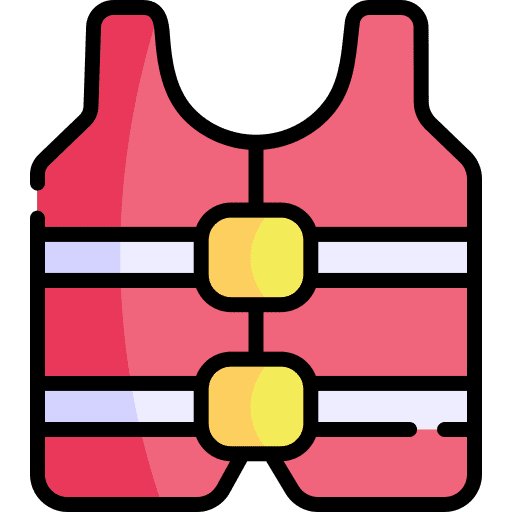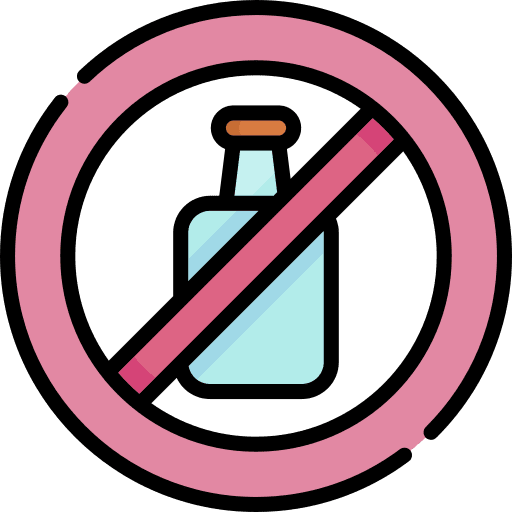While water activities can be a fun and enjoyable way to spend time with loved ones, they can also be dangerous if proper precautions are not taken. In fact, drowning is the second leading cause of accidental death among children ages 1 to 14.
We have compiled a comprehensive list of tips to keep you safe around water.
Water Safety Tips
Water safety tips are essential in preventing accidents and injuries around water bodies. Whether swimming, boating, or just lounging next to a pool, it’s important to know some basics to stay safe around water. Here are some of the most critical tips to follow:
 1. Learn to swim
1. Learn to swim
It is essential to have swim skills if you’re around water, whether in a pool or a natural body of water. These swim skills include treading water, floating, and basic swim strokes.
Knowing how to swim decreases the chance of drowning, so consider investing in swim lessons for you and your family.
 2. Wear a life jacket
2. Wear a life jacket
If you’re not a competent swimmer, it’s essential to wear a life jacket when in or near water. They provide buoyancy, keeping you afloat even if you’re tired or injured. Make sure the life jacket you wear is appropriate for the activity you’re doing.
 3. Supervise children
3. Supervise children
Children should always be supervised when around water, regardless of their swimming ability. They should never be left alone in the water or near it, whether it’s a bathtub, swimming pool, or natural body of water.
 4. Use caution in natural bodies of water
4. Use caution in natural bodies of water
Natural bodies of water such as lakes, rivers, and oceans can be unpredictable. They can have hidden currents, rocks, and other hazards that can make swimming more dangerous. Always follow local rules and signage around natural bodies of water and swim in designated areas.
 5. Follow pool/hot tub rules
5. Follow pool/hot tub rules
Following pool or hot tub rules can help keep you and others safe, whether it’s about diving, running, or overcrowding.
Always follow pool rules, including no running, no diving in shallow ends, and no diving in areas with no visibility.
 6. Don’t go for a dip if you have open wounds/infections
6. Don’t go for a dip if you have open wounds/infections
Open wounds, cuts, or infections are susceptible to bacteria in the water. To avoid getting an infection, don’t enter the water until your cut has healed.
 7. Don’t drink alcohol before and during water activities
7. Don’t drink alcohol before and during water activities
Alcohol impairs your judgment, balance, and coordination, which can increase the risk of accidents and drowning.
 8. Know how to perform CPR
8. Know how to perform CPR
In the event of an emergency, knowing CPR can save someone’s life. Taking a CPR class can be valuable and increase the confidence of everyone around the water.
 9. Use the buddy system
9. Use the buddy system
When swimming, always use the buddy system. It’s simple: always swim with a partner or near someone who can quickly assist if needed.
 10. Practice sun safety
10. Practice sun safety
When around water, people often forget about the risk of exposure to UV rays. Always wear sunscreen and protective clothing when in or near water.
Educating Others about National Water Safety Month
Water safety is a crucial topic that should not be taken lightly, especially when it comes to children and non-swimmers. According to the Centers for Disease Control and Prevention (CDC), drowning is the leading cause of unintentional injury-related deaths among children aged 1-4 years. This statistic highlights just how important it is to educate others about water safety and precautions that should be taken when in or around water.
One of the best ways to spread awareness about water safety is to take advantage of National Water Safety Month, which is held every May. American Red Cross and the Pool and Hot Tub Alliance are both reputable organizations that provide resources and information about water safety. The International Swimming Hall of Fame has an online water safety program available, as well!
All of their websites are packed with useful information to help people stay safe in and around the water. From safety tips for different age groups to proper rescue techniques, these organizations offer a wealth of knowledge to help prevent water-related accidents.
As a responsible adult or caregiver, it is crucial to educate children on water safety skills. With the help of resources and education, we can contribute towards making our communities safer and ensuring that lives are not lost to water-related incidents.
Looking for fun ways to educate children about water safety?
- Download and print SplashZone’s coloring book for children ages 4 to 7
- Watch Longfellow’s WHALE Tales Program featuring short, educational videos
- Visit Bobber, the Water Safety Dog’s, website for games, activities, and more!
Conclusion
As we celebrate National Water Safety Month, it is important to remember that water activities can pose risks if proper safety measures are not followed. Whether you are using your hot tub for relaxation or therapy, it is essential that you prioritize safety to prevent accidents.
By following these general water safety tips, you can help yourself and others stay safe and enjoy water activities to the fullest. Remember: being safe in and around water is critical, so make it a priority to learn and follow water safety rules.
If you are interested in learning more about hot tub specific safety tips, we’ve curated a separate list of important safety precautions!
